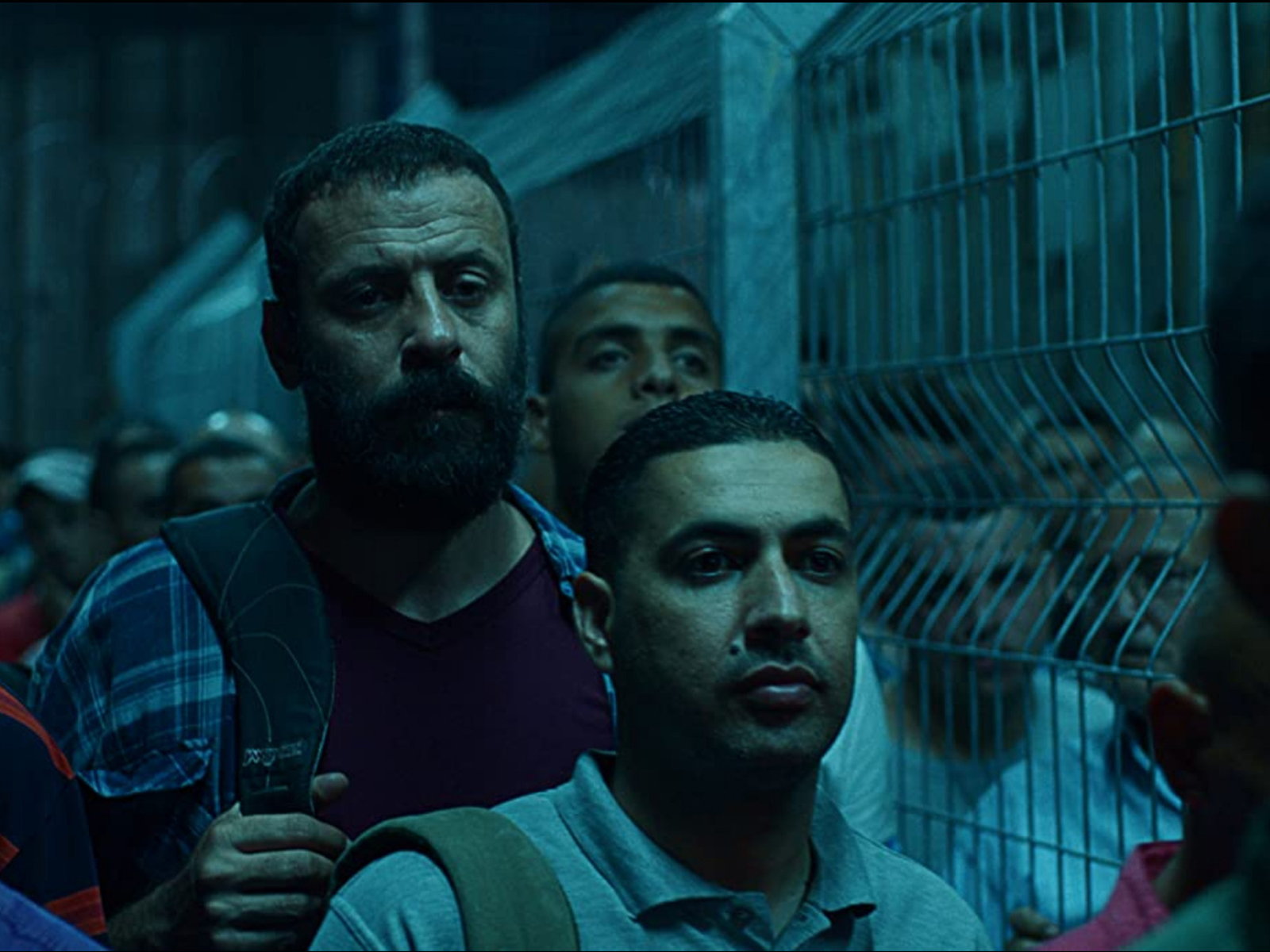
- Golden Globe Awards
200 Meters (Jordan)
200 Meters is the literal distance that separates Mustafa (Ali Sulieman), who lives in the West Bank, from his wife and children, who live on the other side of the wall in Israel. Their physical distance is bridged by phone calls and shout-outs or the occasional visit, which necessitate Mustafa applying for a permit from the Israeli authorities. He also needs to apply for a work permit in order to go to work in Israel – a journey that entails waking up every day before dawn and waiting in line for hours in order to pass through a security checkpoint.
Yet in spite of the hardship and the deprivation of his family’s warmth and the consternation of his wife, who works two jobs to make ends meet, Mustafa stubbornly refuses to apply for an Israeli ID card that would enable him to live in Israel.
One day, the Israeli official at the checkpoint doesn’t let him cross, telling him that his permit is invalid. So he seeks the services of a smuggler, but the cost is too prohibitive let alone the risk of getting caught, which would prevent him from ever obtaining a permit.
But when he gets a call from his wife that their son had an accident, he rushes back to the smuggler, and takes the perilous journey, with a group of eclectic passengers, across the West Bank towards Israel.
In spite of its political theme, the film eschews political commentary and wipes out any trace of it from the dialogue, focusing on its characters’ actions as they try to navigate a seemingly monotonous life yet filled with great existential dangers and humiliating indignities. “I just wanted to make a road movie,” says its first-time director, Amin Nayfeh.
Nayfeh also injects humor in some of the film’s grimmest moments. For instance, when an anxious Mustafa pleads with the smuggler to drive off, the latter tells him nonchalantly that he needs more passengers. So Mustafa tries to recruit random people to take the journey with them. Eventually, the van is filled and a ride into the unknown begins.
Mustafa remains on edge, pressing the driver to hurry up, but his urgency is met with indifference. Other passengers turn their curiosity to a young German camerawoman, who becomes their source of entertainment but her behavior sparks Mustafa’s suspicion.
No one seems to be in a rush in Palestine; their time is under occupation, just like their space. Mustafa refuses to succumb to the rules of occupation, but every time he tries to break them, he encounters a bigger and more dangerous challenge. At one point, he finds himself trapped inside a car trunk with other passengers, nearly suffocating when the smuggler runs away. That trunk could be a metaphor for his life under occupation.
The film premiered at the 77th Venice Film Festival, where it won the People’s Choice Award. It received more accolades in other festivals, such as El Gouna Film Festival where it scooped three awards.

